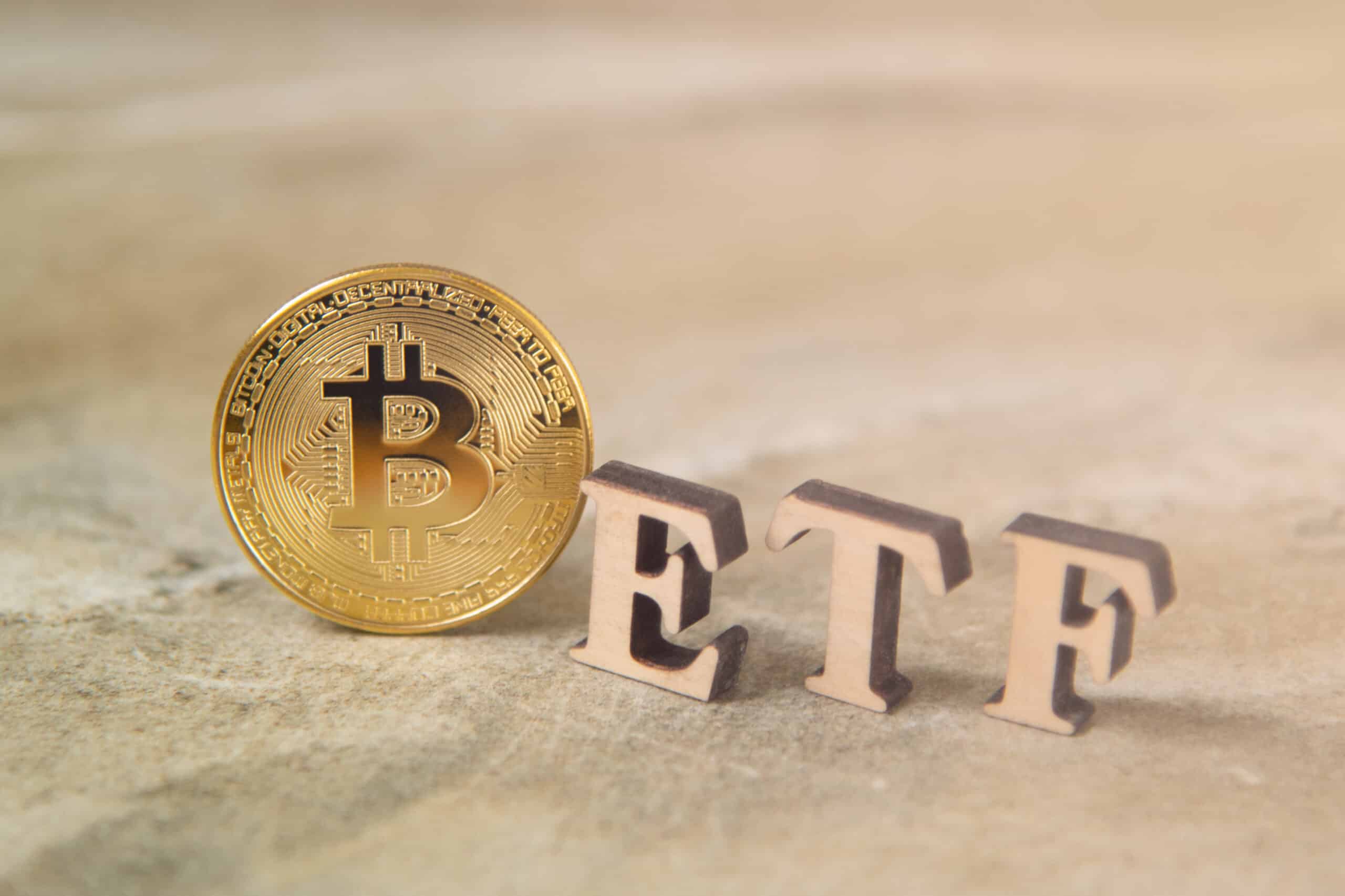
Posted January 10, 2024 at 4:14 pm EST.
After countless rejections over more than a decade and more recent lengthy negotiations with prospective issuers, the Securities and Exchange (SEC) finally approved multiple spot bitcoin exchange traded funds.
In a filing on Wednesday afternoon, the SEC said it had approved applications from all 11 applicants on an accelerated basis. The link for the SEC’s filing was not loading recently for unknown reasons.
“Order granting accelerated approval” it’s over. Thank God. pic.twitter.com/qCozlxzSBX
— Eric Balchunas (@EricBalchunas) January 10, 2024
Spot bitcoin ETFs are based primarily on the price of the largest digital asset by market capitalization.
Immediately following the decision, Bitcoin was trading up about 1% to $45,930, according to CoinMarketCap. Bitcoin has gained about 14% in the last month on optimism about a spot ETF approval, and Ether, the second largest digital asset by value, and other major cryptos have also been swept up in the investor euphoria. Bitcoin’s upcoming halving in April has also figured in market optimism.
The ETF approvals came roughly six months after BlackRock relit interest in the products that the SEC had rejected multiple times over the years, most recently in late 2021 and 2022. Those denials and its chairman Gary Gensler’s repeated objections undercut hopes for the appearance of these products in the U.S. any time soon.
Gensler maintained that the spot BTC products did not provide adequate consumer protections, although observers of the ongoing battle between the SEC and the crypto industry believe that his resistance stemmed from a desire to ratchet up digital asset regulation.
The Power of BlackRock
But June’s application by BlackRock, with its enormous financial might, spurred other major financial services institutions to follow suit. Fidelity, Hashdex, New York Digital Investment Group and Franklin Templeton filed or refiled their own applications in the ensuing weeks and other companies that had already received rejection notices renewed their efforts to win the SEC’s okay.
In a note to Unchained, Mark Connors, research head for Canadian crypto asset manager 3iQ, called the pending spot BTC ETF approvals “the tail end of a longer, less appreciated story of growing demand by traditional players working to integrate digital assets.”
Read more: How Will a Spot Bitcoin ETF in the U.S. Affect the Rest of the World?
“The story behind the timing of the June 15 filing by BlackRock for a spot BTC ETF underscores the degree of conflict between a seemingly stubborn SEC and established industry players interested in a regulated digital asset offering for clients,” he wrote.
By late summer, the SEC was weighing 12 applications, including Grayscale’s desire to change its trust into a spot BTC ETF. A thirteenth firm, Pando Asset, filed its spot bitcoin ETF application only in late November, a late date for the Swiss crypto asset manager to receive consideration with the other filings.
Positive Signs
Along the way, signs pointed increasingly to SEC approval. In August, a federal appeals court ruled that the SEC would have to reconsider Grayscale’s application. In a December interview with CNBC, the SEC’s Gensler noted that the court decision figured in the SEC’s more receptive stance. “We had in the past denied a number of these applications, but the courts here in the District of Columbia weighed in on that. So we’re taking a new look at this based upon those court rulings.”
Meanwhile, a BlackRock filing with the agency and separate memo showed that the financial services giant was preparing for a potential ETF and addressing SEC concerns focused on investor safety and market manipulation.
And in early December, the SEC expedited posting dates in the Federal Register – the U.S. government’s official daily publication for rules and notices – for comments periods to end for the Franklin Templeton and Hashdex filings. The tighter deadlines allowed the regulator to offer judgment on those applications along with the other 10 that had been in process for months. It also established a potential mass approval of the filings, noted Bloomberg ETF research analyst James Seyffart in a Dec. 1 interview with Unchained.
In November and December, spot Bitcoin filers met repeatedly with the SEC and submitted a flurry of amendments that seemed to address the same issues that the regulator flagged to BlackRock. The issuers’ revised proposals included language providing for cash creation and redemption, which allows participating entities to generate and recover shares in exchange for cash.
“The reason the SEC wants cash creates only is this means only the ETF issuer handles btc and not the intermediaries (registered broker dealers can’t),” wrote Bloomberg Senior ETF analyst Eric Balchunas in a Dec. 14 thread on X (formerly Twitter). “They prob also not comfy w them having unregistered broker dealer subsidiaries handle either.”
The reason the SEC wants cash creates only is this means only the ETF issuer handles btc and not the intermediaries (registered broker dealers can’t). They prob also not comfy w them having unregistered broker dealer subsidiaries handle either (bc they not registered).
— Eric Balchunas (@EricBalchunas) December 14, 2023
Price Surges
Surging optimism about SEC approval, meanwhile, buoyed markets. Just 10 days after news of the BlackRock memo, Bitcoin had soared more than 17% to climb past $44,200 for the first time since the spring of 2022. BTC is up more than 80% since the early June BlackRock and Fidelity filings. BTC’s spike has also swept up other major cryptos with ether climbing about 18%% since late November.
BTC’s price increase has confronted analysts, retail investors and financial managers with questions about the asset’s price path in the coming months.
Last month, in a research note to CoinDesk, CryptoQuant said that Bitcoin could sink as low as $32,000 immediately following approval of an ETF. The onchain analysis group said that traders’ unrealized profits were at levels historically preceding a “sell the news” correction. But in a report a week earlier, CryptoQuant analysts wrote that BTC could reach $160,000 in 2024, more than double its previous high of $69,000 in late 2021.
Similarly, research firm Matrixport wrote in late December that it expected ETF approvals to propel Bitcoin to $50,000, but then published a contrarian report in January arguing that the SEC might reject all ETF approvals. The latter report caused Bitcoin’s price to drop about 8%.
In a 2023 interview with Unchained, Bloomberg’s Seyffart noted that a spot BTC product would help legitimize the asset to a wider audience.
“[The ETF] does put [Bitcoin] on the traditional financial rails and opens it to people who are never going to be the people who are messing with hardware wallets and DeFi,” Seyffart said.






